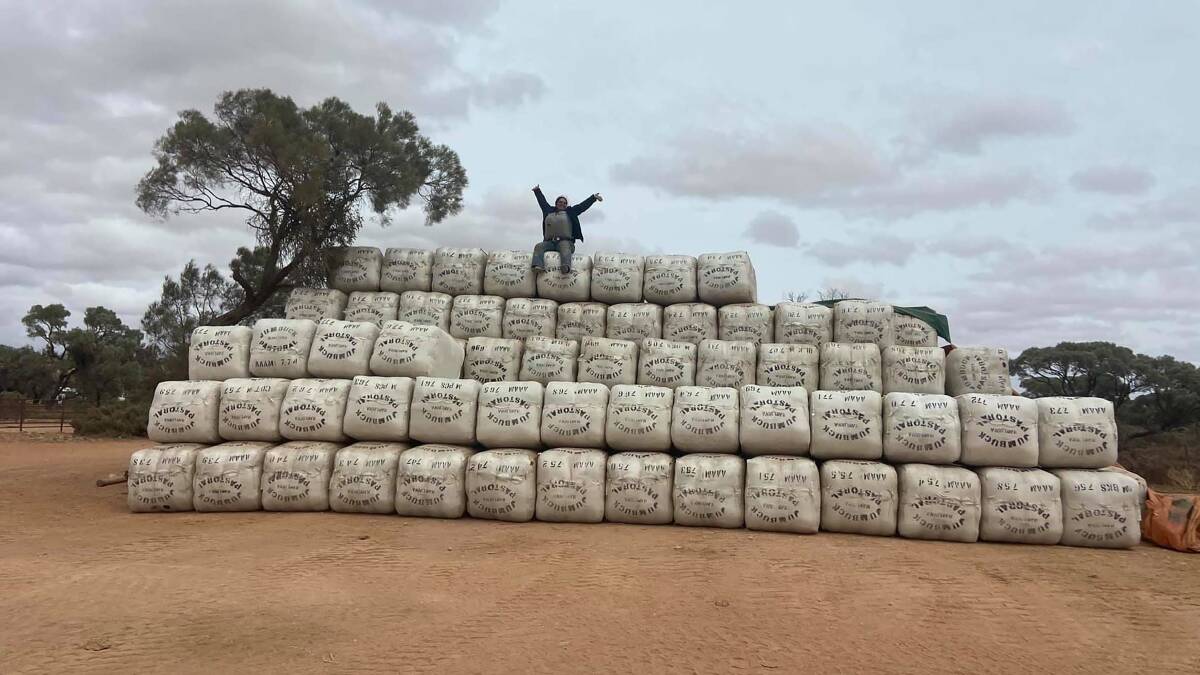
MATILDA McQuie fell into pastoralism by happy accident, but this could be otherwise argued.
Born into the station way of life, Ms McQuie was very much a station manager's daughter.
The first two years of her childhood were spent at Madura Plains - 700 kilometres south east of Kalgoorlie - before her family moved to Commonwealth Hill, in South Australia.
"I definitely ran the show there," the now 20-year-old laughed.
"I'd run around in a singlet and nappy, climb up trees, boss sheep around and cuddle lambs - untouchable really."
You hear the words "farming is in their blood" thrown around a lot in the agricultural sector and this could not ring truer than for Ms McQuie.
After a stint at Eucla roadhouse and her uncle David's cattle station Bulga Downs, the McQuies moved to regional WA.
Some would consider Kalgoorlie isolated, but Ms McQuie was quick to get the jack of 'town life' and wanted to escape the larger crowds.
"I always missed the station environment when we left," she said.
"I missed the space and freedom most and the openness - not being confined to a backyard."
With strong family ties to Rawlinna station and no fear of getting her hands dirty, the then 16-year-old decided to follow in the footsteps of her father and grandfather.
"Dad had been in the industry for a long time and I wanted to head out to the stations," Ms McQuie said.
"I asked him for help and he suggested Rawlinna.
"It was close to home, former manager Ross Wood knew granddad and the current manager Jimmy Wood (who is Ross' son) knew dad - it sounded like a good choice."
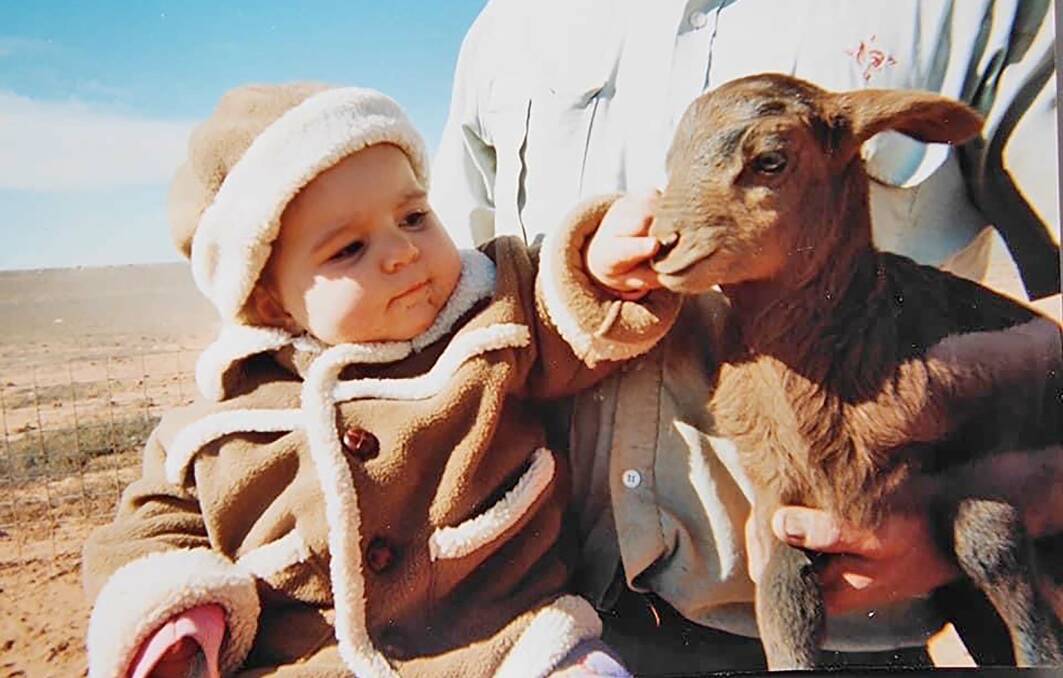
Ms McQuie's parents left Rawlinna in 1996, around the same time it closed as a railway town.
Her earliest memories of the sheep station include staying at the homestead with then managers Michael and Ann Simons.
Little did she know, the trip provided a small window into her future as a young adult more than a decade later.
"I remember being concerned about the horses running around and people being thrown off bulls at the Nullarbor muster," Ms McQuie said.
"When I came back to Rawlinna for work experience some of those memories were unlocked.
"As I got into the swing of things, others came flooding back."
Unlike most people her age, Ms McQuie decided to spend three weeks of her 2018 summer school holidays working at the station.
In what was a relatively short time, she was exposed to almost every far flung corner of the sheep station.
Not literally - given it covers an area of 10,000 square kilometres - but in the sense that she was given a well-rounded experience.
Three weeks became four years and a short stint became a full-time career.
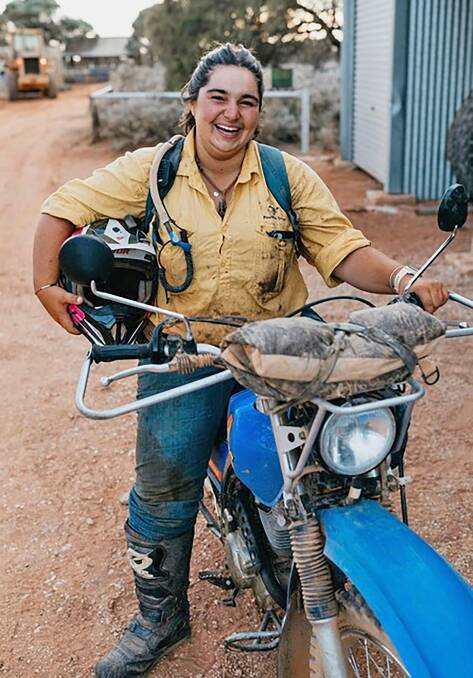
Surprisingly, working at the station wasn't always part of Ms McQuie's plan, her dream was to become a veterinarian.
"I signed up for uni, after finishing year 12," she said.
"I deferred for a year, went back out to Rawlinna and had so much fun, I asked if I could stay on.
"Jimmy was more than happy for me to and so I ended up ignoring all my uni emails.
"Now my main focus is pursuing a career in agriculture and jillarooing."
Very few teenagers can say they have taken part in shearing at Australia's largest operating sheep station.
By the time this season came to an end, Ms Mcquie had completed four.
And - despite not working directly inside the 16-stand, double-storey shearing shed - she has still played an integral role in getting the job done.
Similarly to when her grandfather managed the station some three decades ago, shearing at Rawlinna kicks off in mid to late-February and runs through to March.
The biggest difference between times is that almost half the number of sheep are shorn.
In saying that, 50 per cent of 60,000 head is still significant.
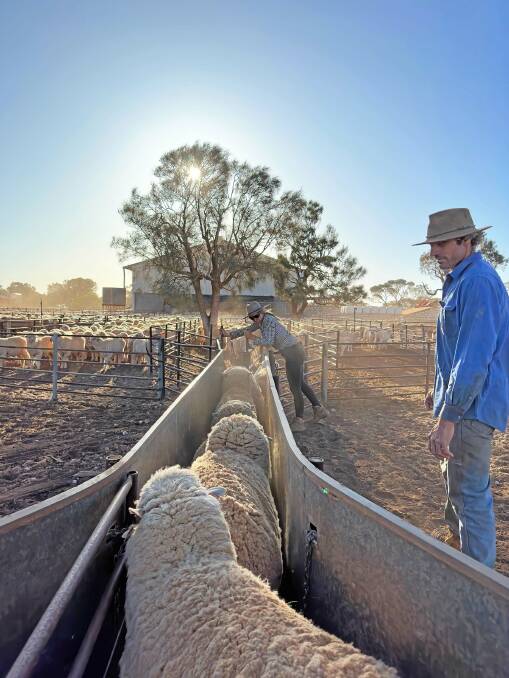
This year, the team worked 12 to 13 hour days over four weeks to complete a 30,900-head Merino shearing program in the height of a Nullarbor summer.
Those who haven't experienced or seen Rawlinna's shearing season first hand, can only imagine the shed's atmosphere operating at full steam.
Working as a jillaroo, Ms McQuie recognised how dynamic the team was and how well the work flowed.
"Everyone works hard and fast to make sure they are on top of everything," she said.
"Shearers are shearing sheep at record speeds and the rousey's fingers are moving quickly, so they can get out of the way before the next fleece comes in.
"It is a very well-oiled machine and very intense work."
Before the season gets underway, water trapping tactics are used to move sheep from paddocks and closer to the shed.
This can be a long and slow process in the height of summer, made even more challenging with stubborn woollen sheep.
At the end of each shearing day, sheep are walked into holding paddocks where they can access fresh feed.
Ms McQuie said it was important to stay switched on at all times, otherwise shorn and unshorn mobs could easily be mixed up.
"There have been plenty of mix ups in the three shearing seasons I have worked," she said.
"That's life though - you just bring the sheep back in, draft them and make sure you are more careful next time."
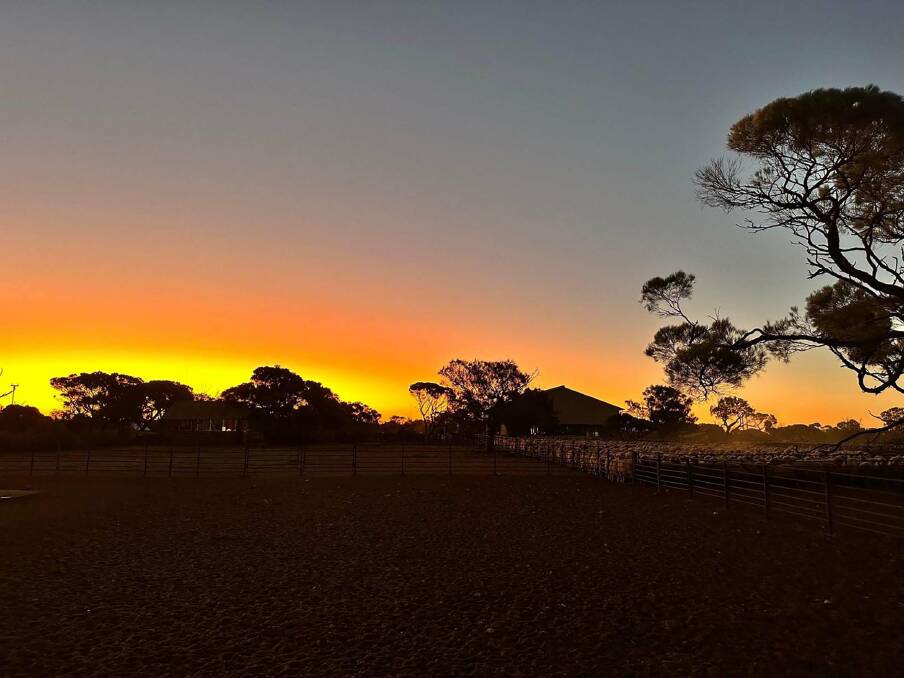
Days where mornings have been most daunting are when Ms McQuie has learned the most.
She would be given her job for the day and feel anxious about the unknown.
"One day Jimmy took me out to a bore with the loader,'' she said.
"The dirt around the troughs had been scoured away by the sheep, so my job was to collect dirt and build up the trough aprons again.
"I was so nervous because I hadn't driven a loader before or anything bigger than a car for that matter.
"I also had to make sure I didn't drive over or bump into any troughs or pipelines."
After showing Ms McQuie the ropes, Mr Wood left for another job.
Shortly after the pipeline was accidentally busted.
"We had to rip it up and replace it, but it was a great learning experience," Ms McQuie said.
"I gained some confidence and trust in myself.
"That was when I learned that if you make a mistake, you just have to fix it."
In between seasons, Ms McQuie has been busy studying for her private pilot's licence.
When you're living and working somewhere as remote as Rawlinna, flying is the best way to cover long distances.
She has also worked at the Kalgoorlie-Boulder Urban Landcare Group's community nursery in Karlkurla Bushland Park, where vegetation native to the Goldfields is grown.
"I was able to learn a lot in that job - living on stations I have always had an interest in native animal and plant species.
"Before I wasn't able to identify particular plant and tree species at muster.
"Now, I have names for them all, which is great."
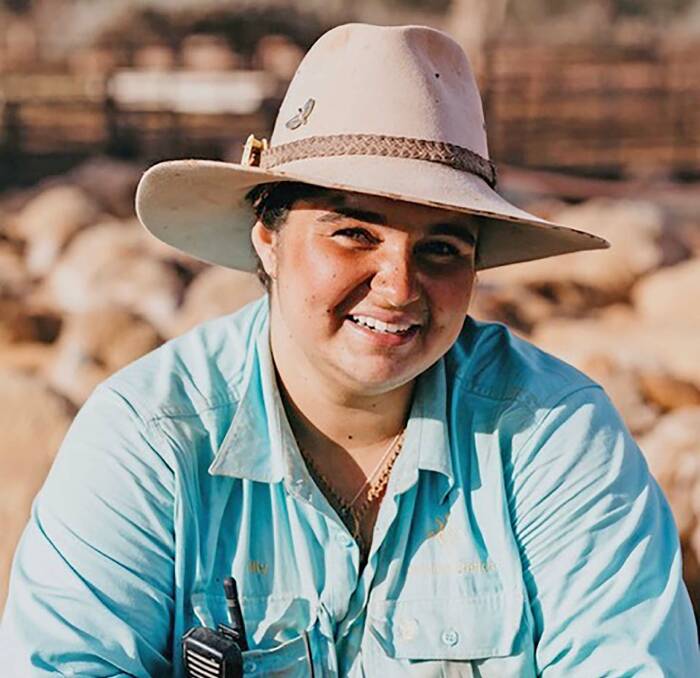
This season, Ms McQuie's sibling Jordan has also carried the family tradition at Rawlinna.
They have been to the station before, but not at working capacity.
Ms McQuie said people who hadn't been to remote WA, didn't have a concept of the lifestyle, particularly living in the middle-of-nowhere with about 20 people.
She said most of her friends from school had never ventured out bush and always lived in Kalgoorlie.
With that comes a lot of questions.
"Often I get asked about the humane aspects of livestock handling,'' she said.
"I've assured people it is most definitely not as cruel as people make it out to be.
"We aren't stripping these animals of everything they have - it is our job to look after them.
"The biggest task is caring for their welfare, because without that you don't sell a good product to market."
The independence and having to think on her feet, is what Ms McQuie enjoys most about working at Rawlinna.
Unlike the city, you can't phone up for help and get it in five minutes out bush.
If you get a flat tyre in a back paddock, you need to fix it, otherwise it could be hours before anyone even starts looking for you.
Ms McQuie appreciates the critical thinking skills gained through pastoral work and the many other lessons she has learned.
"I appreciate watching the life-cycle of the livestock," she said.
"I've learned the importance of nurturing the animals we look after, particularly in the tougher years like what we recently saw on the Nullarbor.
"I've also learned that sheep are under-estimated and smarter than we all think."
READ MORE:
Last year, Ms McQuie was awarded the Goldfields Nullarbor Rangelands Biosecurity Association Young Pastoral Achiever award, for her dedication and hardwork.
She was blown away to have been the recipient, particularly after Mundrabilla station's Sophie Campbell.
"I went to school with Sophie for a year - I know how passionate she is and how much she has given to the industry,'' Ms McQuie said.
"I really look up to her, so it was nice to be put on that level."
Over the next couple of years, Ms McQuie plans to 'go with the flow' and see where life takes her.
Eventually, she would love to visit and experience sheep and wool in New Zealand.
"I definitely want to go on more adventures and to have that exposure to different aspects of agriculture before I settle into anything," she said.
"I would also love to be a part of the management team on a pastoral station.
"I have loved my time at Rawlinna and I will find it very difficult to leave - it feels like home for sure."


